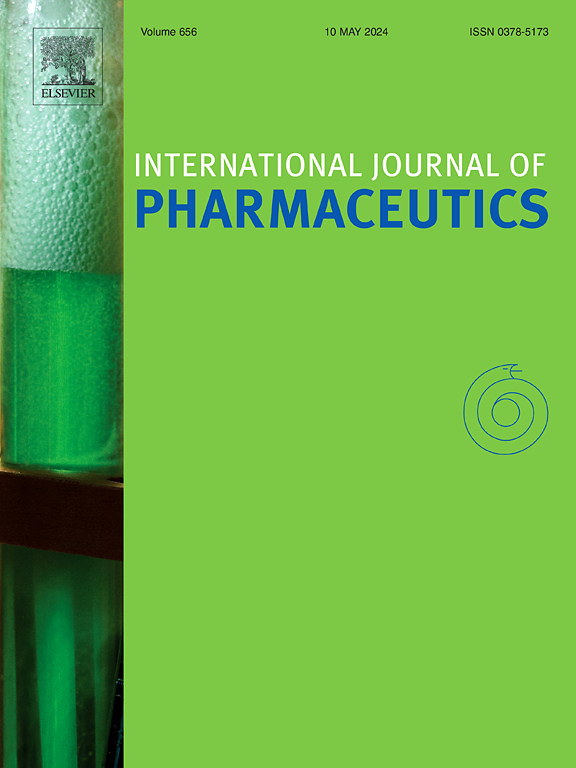Alginate-based microencapsulation as a strategy to improve the therapeutic potential of cannabidiolic acid
IF 5.3
2区 医学
Q1 PHARMACOLOGY & PHARMACY
引用次数: 0
Abstract
Cannabidiolic Acid (CBDA) is a promising natural compound with potent antioxidant, anti-inflammatory, and anti-emetic properties. Its antioxidant activity rivals that of vitamin E, while its anti-inflammatory effects are also remarkable. Additionally, CBDA has been shown to effectively reduce nausea and emetic attacks. As a more natural and water-soluble alternative to CBD, CBDA offers improved bioavailability and absorption. However, despite its promising potential, the development of effective CBDA delivery systems is still in its early stages. Among the various materials suitable for drug delivery, alginate is a widely used biopolymer due to its abundance and common availability in nature. This study aimed to develop an efficient CBDA delivery carrier using a microflow-dripping method to microencapsulate CBDA into alginate carriers (Alg-CBDA). The antioxidant, antimicrobial, and cytotoxicity properties of these Alg-CBDA capsules were then evaluated. Our results demonstrated that encapsulating CBDA within alginate capsules yielded a novel multifunctional biomaterial with prolonged antioxidant activity up to 72 h and antimicrobial activity against Gram-positive bacteria. Furthermore, the encapsulation process significantly reduced CBDA’s cytotoxicity, broadening its potential applications. To our knowledge, this is the first study demonstrating the advantages of CBDA within a drug delivery framework.

海藻酸微胶囊化是提高大麻二酚酸治疗潜力的一种策略。
大麻二酚酸(CBDA)是一种很有前途的天然化合物,具有有效的抗氧化,抗炎和止吐特性。它的抗氧化活性可与维生素E相媲美,同时它的抗炎作用也很显著。此外,CBDA已被证明能有效减少恶心和呕吐发作。作为一种更天然和水溶性的CBD替代品,CBDA提供了更好的生物利用度和吸收。然而,尽管其潜力巨大,有效的CBDA输送系统的发展仍处于早期阶段。海藻酸盐是一种广泛应用的生物高分子材料,具有丰富的资源和广泛的可得性。本研究旨在开发一种高效的CBDA给药载体,采用微流滴法将CBDA微胶囊化到海藻酸盐载体(Alg-CBDA)中。然后评估这些Alg-CBDA胶囊的抗氧化、抗菌和细胞毒性。我们的研究结果表明,将CBDA包埋在海藻酸盐胶囊中可以获得一种新的多功能生物材料,其抗氧化活性高达72 h,并且对革兰氏阳性细菌具有抗菌活性。此外,包封工艺显著降低了CBDA的细胞毒性,扩大了其潜在的应用范围。据我们所知,这是第一个在给药框架内证明CBDA优势的研究。
本文章由计算机程序翻译,如有差异,请以英文原文为准。
求助全文
约1分钟内获得全文
求助全文
来源期刊
CiteScore
10.70
自引率
8.60%
发文量
951
审稿时长
72 days
期刊介绍:
The International Journal of Pharmaceutics is the third most cited journal in the "Pharmacy & Pharmacology" category out of 366 journals, being the true home for pharmaceutical scientists concerned with the physical, chemical and biological properties of devices and delivery systems for drugs, vaccines and biologicals, including their design, manufacture and evaluation. This includes evaluation of the properties of drugs, excipients such as surfactants and polymers and novel materials. The journal has special sections on pharmaceutical nanotechnology and personalized medicines, and publishes research papers, reviews, commentaries and letters to the editor as well as special issues.

 求助内容:
求助内容: 应助结果提醒方式:
应助结果提醒方式:


